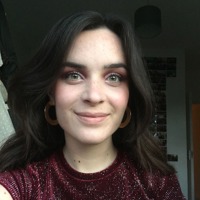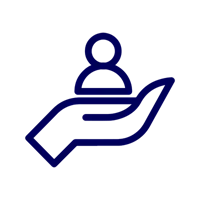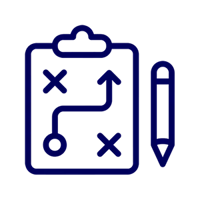
Olivia Vile
Graduate Data Analyst at Babcock International
My career is one of the most important things to me as it is how I measure my own success, and after putting so much effort into school I now have an incredible job which I look forward to every day. Hard work pays off.
About Olivia...
Who am I?
"Being a Data Analyst and working with numbers, one thing you are constantly doing is looking for a more efficient and effective way to get the task done to cut down on time, resources and money. As a Trainer type personality, this goes hand in hand as you need to be organised, able to look at a process differently and see how you can improve it.Creativity is a big part of who I am in and out of the workplace, so I could not identify with the Developer type personality more! I can be creative in my approach to problem solving, and I like to be practical and learn new concepts, hence why I work for a company who build and make new things every day. One of the most important qualities you can have however is being able to communicate with others well and work effectively in a team. It is key to being able to produce good quality work, for example if you are working towards an important deadline. It is always better to ask for help if struggling in any line of work than to suffer in silence, that is something I find really rewarding in my own work - being part of a group where we all support each other. The Influencer type personality fits this perfectly. "
What do I do?
"I am a Graduate Data Analyst for Babcock International- Babcock are an engineering company who work in four sectors: Land, Aviation (aircraft), Marine (boats) and Nuclear. I am working in Marine and Nuclear which means the work I do benefits Devonport Dockyard, a large naval base in Plymouth. What they do is look after submarines which the Royal Navy use to protect the United Kingdom. Thrilling isn't it!Data Analytics basically means looking through many, many rows of data and seeing if you can spot any patterns and relationships between all the numbers. Once you spot patterns, you can then start to draw conclusions which can help further decisions people have to make.One of things I like most about my job is learning different computer programmes. What do I mean by this? There are many different computer programmes out there which can do interesting things like write algorithms, create graphs and sort out data so it is tidy and easy to read. This benefits people who need the numbers but can't make sense of them.As I work for the dockyard, this means I get to learn about submarines and all their different parts. A submarine is very complex, but it also means there is always something new and exciting to learn. "
How did I get here?
"I have known from a young age I wanted to go into engineering as I love being practical and technical. However, I was never that good at science during school so aspired to become a mathematician instead! I know for a lot of people maths is there least favourite class in school, but I found it so satisfying solving complex problems I left secondary school with it being my favourite. For me, it is really important to think about the big picture so even though when I was younger I wasn't absolutely sure what I wanted to do as a career, I knew expanding my horizon by picking up new hobbies and joining clubs would develop my skill set and give me knowledge I could apply later on in life. For example, my first job was working in gift shop and gallery which has nothing to do with STEM, but it gave me the opportunity to work in a team, increase my confidence and allow me to master time management- skills I can apply to any job now. I went on to study Maths, Art and Economics at A level always with the intention of going onto university but still unsure of what I would study. Coming from a competitive family definitely helped me choose, and after being told many times by men in my life growing up that I couldn't do something or they didn't think I was smart enough to get there, I decided on studying Maths at university as I knew that working hard in a specialist area is an excellent way to prove them wrong, especially in an area that I love. My career is one of the most important things to me as it is how I measure my own success, and after putting so much effort into school I now have an incredible job which I look forward to every day. Hard work pays off. "
The life I live
"2020 has definitely given me the time to work on some new creative projects! I love to draw, paint and embroider; I am constantly looking for new mediums to try out. I have two guitars (an acoustic and electric) so most evenings I like to practice for a couple hours and jam out to music.At the weekend, I love hanging out with my friends and going on adventures together. However, my biggest commitment outside of work is tending to all my plants and keeping them happy. "
My typical day
"My day normally starts with me replying to emails/messages and reading the company's daily news bulletin. On average I have at least a couple meetings a day, so I will make sure any work needed for these meetings is ready, prepared and that my notes are clear. After this I have two types of work to complete. The first is any on going projects, this can be anything from research to working on something called Data Visualization which means deciding how best to present data and what type of graph works best, for example a bar chart or line graph.The second type of work is training in different computer programmes. This means completing online courses and making sure I know the material by completing practice questions with small datasets. This is some of my favourite work, as I can do it at my own pace but it also means I am constantly learning new things. In between this, I have virtual coffee breaks with other graduates and members of my team. It is important to take breaks and chat to others about how you are doing, especially if working from home. "
My qualifications
"I have three A levels: Maths (A*), Economics (A), Art (A) and an Extended Project Qualification. I then studied MORSE (Maths, Operational Research, Statistics and Economics) at the University of Southampton. For my role as a Graduate Data Analyst I needed a 2:2 minimum in my degree which I achieved. Now and over the next four years I will be working towards becoming a Chartered Data Scientist. "



